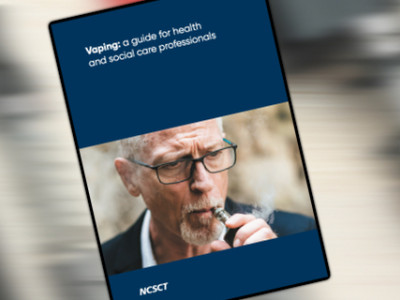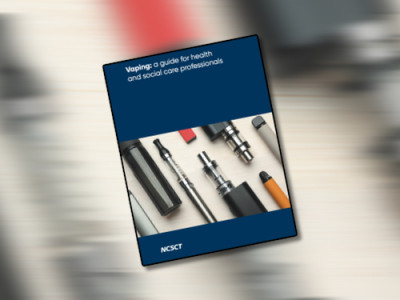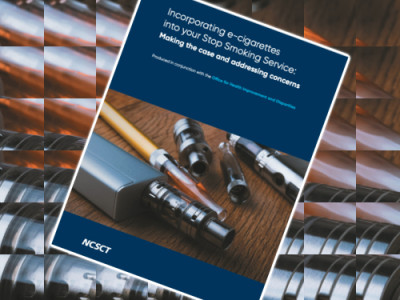The Public Health England team leading the policy guidance for health and care professionals transitioned into the Office for Health Improvement and Disparities on 1 October 2021. The new document was welcomed by both the Independent British Vape Trade Association and the UK Vaping Industry Association.
The Office for Health Improvement and Disparities writes: “This guide is part of All Our Health, a resource that helps health and care professionals prevent ill health and promote wellbeing as part of their everyday practice. It will help you to:
- understand the specific activities and interventions that support a smoker to quit
- access training resources to support your learning and further develop your skills in motivating and supporting smokers to quit
- think about the resources and services available in your area that can help people quit smoking
“We also recommend important actions that managers and staff in strategic roles can take.”
The guide covers:
- Access the smoking and tobacco e-learning session
- Why you should focus on smoking in your professional practice
- Harm to health caused by smoking
- Quitting smoking: the importance of support
- Core principles for health and care professionals
- Taking action
- Indicators of tobacco’s effect on local populations
- Measuring local impact
- Further reading and resources
- Good practice examples
The publication is important as a number of studies have uncovered a shocking level of misunderstanding in doctors and nurses when it comes to nicotine and electronic cigarettes – and medical journals continue to publish misleading articles by misinformed clinical practitioners.
The e-learning course has been designed to combat this and to increase their confidence and skills in making smoking prevention part of day-to-day practice.
On vaping, it says: “E-cigarettes are the most commonly used quit aid among smokers in England and there is growing evidence of their effectiveness. An updated Cochrane Review published in 2021 found that nicotine-containing e-cigarettes are around twice as effective in supporting smokers to quit as NRTs such as patches and gum.
“E-cigarettes are not licensed as medicines in the UK, but they are tightly regulated for safety and quality. Most of the poisonous chemicals contained in tobacco smoke, including tar and carbon monoxide, are not in e-cigarette vapour. The chemicals that are in e-cigarette vapour are at much lower levels than in tobacco smoke.
“Leading health and public health organisations including the Royal College of General Practitioners (RCGP), British Medical Association (BMA), Cancer Research UK and the US National Academies of Sciences, Engineering and Medicine agree that although e-cigarettes are not risk-free, they are far less harmful than cigarettes.
“National Institute for Health and Care Excellence (NICE) guideline Tobacco: preventing uptake, promoting quitting and treating dependence (NG209) includes recommendations on the advice that health and care professionals should provide to smokers on using e-cigarettes to quit.”
References:
- Smoking and tobacco: applying All Our Health - https://www.gov.uk/government/publications/smoking-and-tobacco-applying-all-our-health/smoking-and-tobacco-applying-all-our-health
Photo Credit:
Photo by Owen Beard on Unsplash
Dave Cross
Journalist at POTVDave is a freelance writer; with articles on music, motorbikes, football, pop-science, vaping and tobacco harm reduction in Sounds, Melody Maker, UBG, AWoL, Bike, When Saturday Comes, Vape News Magazine, and syndicated across the Johnston Press group. He was published in an anthology of “Greatest Football Writing”, but still believes this was a mistake. Dave contributes sketches to comedy shows and used to co-host a radio sketch show. He’s worked with numerous vape companies to develop content for their websites.
Join the discussion
New NCSCT Vaping Briefing
The National Centre for Smoking Cessation and Training has released its updated guide to vaping aimed at health and social care professionals
NCSCT Updates Professional Guidance
The National Centre for Smoking Cessation and Training (NCSCT) has updated its vaping guide for health and social care professionals
NCSCT Supporting Quit Services
The National Centre for Smoking Cessation and Training has issued a guide to help UK smoking cessation teams to incorporate vaping into their services.
Sommet De La Vape
The third Sommet de la Vape was held last month and videos of the presentations and debates are now online












